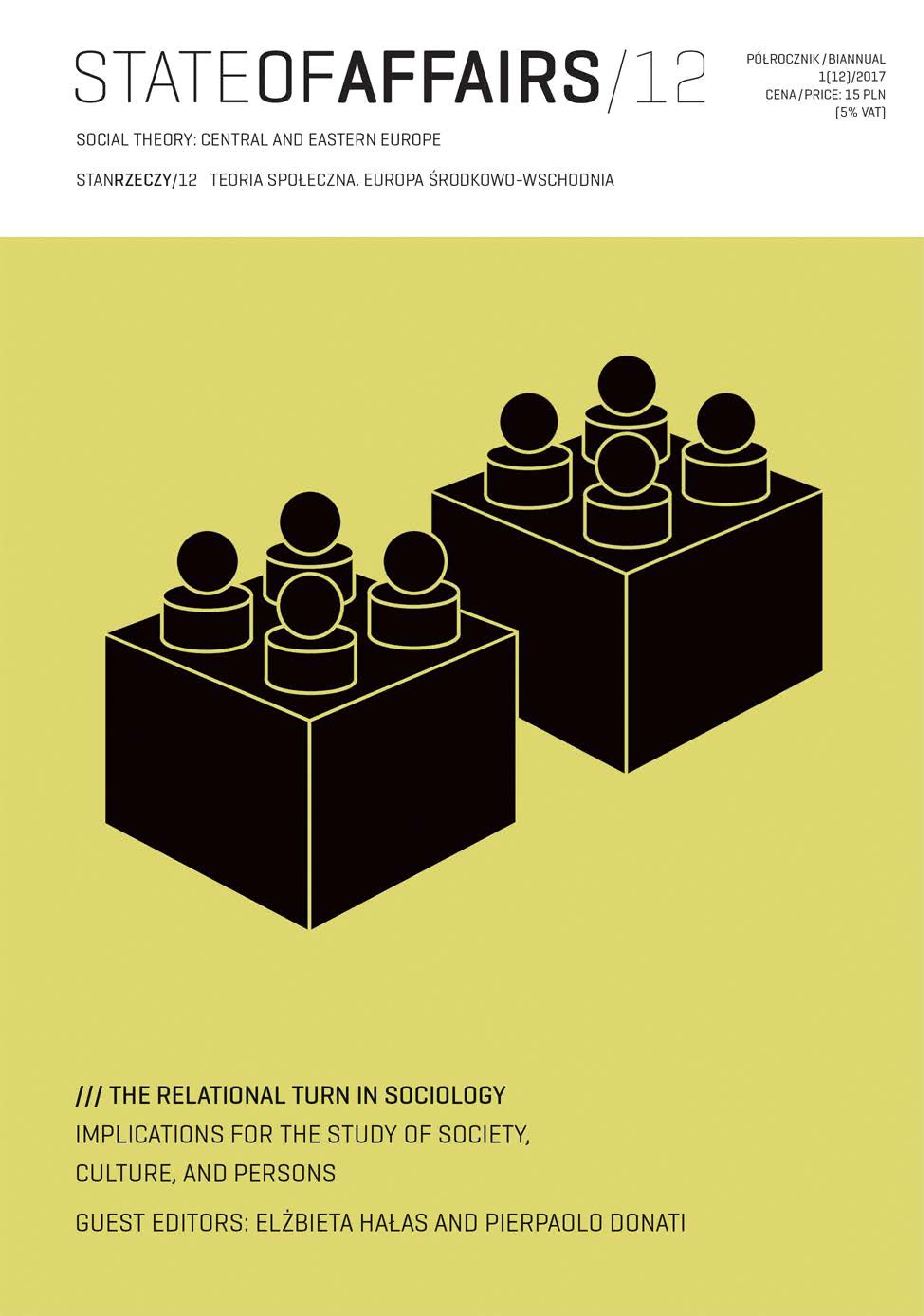Sociologies of Everyday Life: From Alienation to the Production of Meaning
Sociologies of Everyday Life: From Alienation to the Production of Meaning
Author(s): Paolo TerenziSubject(s): Social Sciences, Sociology, Social Theory
Published by: Wydział Socjologii Uniwersytetu Warszawskiego
Keywords: meaning; dualism; everyday life; common sense; relational sociology
Summary/Abstract: This paper analyses the concept of everyday life as formulated in relational sociology. It shows that Pierpaolo Donati’s historical analysis of the dualist nature of everyday life is similar to that of Alvin Gouldner but that the two authors’ approaches differ in terms of the possibility of overcoming this dualism. From the perspective of relational sociology, sociological interpretations of everyday life can be traced to two paradigms. The first is the Marxist paradigm, in which everyday life is primarily characterized by forms of alienation. The second is the phenomenological paradigm, in which everyday life primarily consists of producing meaning. The first paradigm examines stories and cultures of subordinate social groups, and denounces domination and alienation in everyday life. The second paradigm examines the common-sense world, and how it is taken for granted, structured, and inter-subjective. Relational sociology seeks to overcome these two paradigms by highlighting their aporias, and considers alienation to be the outcome of a deep division between the ultimate meaning of life and the culture of everyday life. While in order to overcome this dualism, Gouldner offers an immanent reading of everyday life, relational sociology tries to show how in everyday life the relationship between social practices and culture may give rise to a new form of secularism that is accepting of non-fundamentalist aspects of religious belief.
Journal: Stan Rzeczy
- Issue Year: 2017
- Issue No: 12
- Page Range: 243-259
- Page Count: 18
- Language: English

